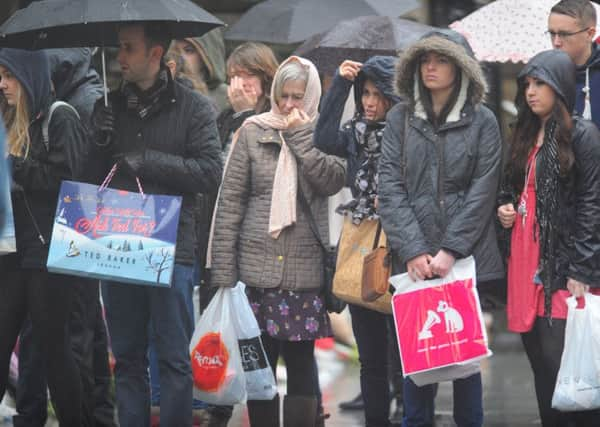Martin Flanagan: Rising prices are on the horizon
This article contains affiliate links. We may earn a small commission on items purchased through this article, but that does not affect our editorial judgement.


The consumer prices index fell to 0.9 per cent in October, below the previous month’s 1 per cent annualised rise. With input prices up sharply because of the post-Brexit vote slide in sterling, and interest rates anchored at historical lows, it is still highly likely that despite the odd blip inflation will climb over the coming months.
Bank of England governor Mark Carney made that point to MPs yesterday, as he also took a sideswipe at those who have complained that lower-for-longer interest rates were sparking inequality, saying political critics were involved in a “massive deflection exercise”.
Advertisement
Hide AdAdvertisement
Hide AdI agree. Those low rates have arguably kept the West out of a rerun of the 1930s depression.
The 20 per cent fall in the pound has made imports more expensive, driving up operating costs for many UK firms that have to import everything from spare parts to food ingredients.
Total input prices rose a hefty 4.6 per cent between September and October. Then you factor in that over the medium term the likely expansion of fiscal policies and the BoE’s willingness to tolerate some “good” inflation, and you can see what the whole inflationary mood music is.
October’s lower-than-expected figure was caused by falling toy and hotel prices, and clothing prices and university tuition fees rising by less than they did a year ago.
But the Bank of England still believes inflation will touch 2.7 per cent cumulatively over 2017 compared with 0.7 per cent this year.
Some say the Bank is taking too roseate a view, and that inflation could reach 4 per cent at some time next year, and that is not unthinkable.
If the cap fits
Our financial regulators are so often tied up with big picture-scandals (PPI, pensions mis-selling, precipice bonds, etc) that we can forget chipping away at the unattractive rather than scandalous can achieve unflashy wins.
The FCA has announced that from 31 March, early exit charges on personal pensions will be capped at 1 per cent of people’s pension pots, and new pension contracts will not be able to impose any early exit charge at all. Skimming off the top by pension providers has long been a blot on the financial system. Good to see it erased.
